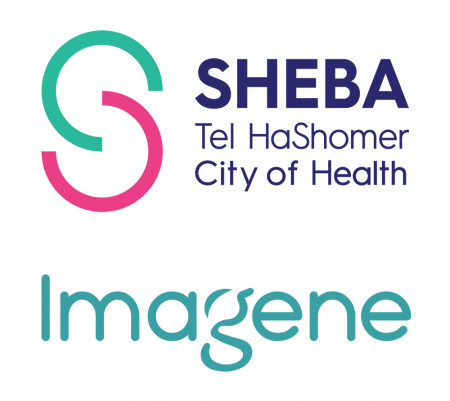New AI Tech Can Detect Cancerous Biomarkers in Real-Time Research

TEL AVIV, Israel, September 13, 2022 (Newswire.com) - Imagene, an emerging leader in the field of AI-based precision oncology, and Sheba Medical Center today announced new research recently published in Modern Pathology journal. The scientific paper entitled "Direct identification of ALK and ROS1 fusions in non-small cell lung cancer from hematoxylin and eosin-stained slides using deep learning algorithms" describes how AI models are used to detect cancerous biomarkers in real-time from the H&E biopsy image alone.
Identifying gene alterations is key for improving patient care and guiding targeted therapeutic decisions. Lung cancer is the most common cancer and accounts for ~1.76 million deaths per year worldwide. Non-small cell lung cancer (NSCLC) comprises ~85% of all lung cancers and is typically diagnosed at advanced stages.
ALK and ROS1 gene fusions are well-established key players in NSCLC. The National Cancer Center Network (NCCN) guidelines recommend a broad molecular profiling using comprehensive next-generation sequencing (NGS). This presents several obstacles, including insufficient tissue for testing, poor quality of DNA or RNA, sequencing failure, and high turnaround time that can span two weeks to even six weeks, a time that lung cancer patients do not have as statistics show that 10-20% of lung cancer patients will die within one to three months.
The study compared the performance of ALK and ROS1 conventional testing methods to that of Imagene's AI solutions. Immunohistochemistry (IHC), Fluorescence in situ hybridization (FISH) and NGS were used as gold standard methods for the analysis. Validation of the ALK/ROS1 classifier on a cohort of lung cancer cases at the pathology department at Sheba Medical Center displayed sensitivities of 100% for both genes and specificity of 100% and 98.6% for ALK and ROS1 respectively, and Area Under the ROC Curve (AUC) of 1 for ALK and 0.986 for ROS1-fusions. These results present unprecedented accuracy levels that are comparable with the gold standard techniques.
"Imagene and Sheba Medical Center, as well as ARC its Innovation Center, have a tight research collaboration in the field of biomarker detection for lung cancer to improve the quality of care and save patients' lives," said Prof. Iris Barshack, Head of the Institute of Pathology at Sheba Medical Center. "We are proud to publish the recent scientific paper in Modern Pathology presenting accuracy levels that have never been shown before. Imagene's deep learning algorithms radically streamline cancer diagnosis and targeted therapy, and we are committed to continue and expand this collaboration to cover more cancer types and biomarkers."
"We are grateful for the tight research collaboration with the Institute of Pathology led by Prof. Iris Barshack at Sheba, a leading medical center that has been ranked as one of the top 10 hospitals in the world," said Dean Bitan, co-founder and CEO at Imagene. "Our research opens a new path for fast and accurate cancer diagnosis and gives us the opportunity to work hand in hand with leading clinical teams in fulfilling the huge advancement that AI-based genomic testing can offer."
Prof. Eyal Zimlichman, Chief Innovation and Transformation Officer at Sheba and the Head of ARC Innovation Center, added, "We are proud of this collaborative achievement, which is solely dedicated to combatting cancer and saving lives by using this game-changing digital technology. This represents the essence of our ARC (Accelerate, Redesign, Collaborate) model that is redesigning the future of healthcare today!"
AI is currently being intensively researched in the pathology domain, yet only a few examples have shown superior results in terms of performance. Our results demonstrate the advantages that image-based AI solutions have in the molecular pathology domain, by enabling fast and accurate biomarker detection and overcoming limitations encountered when using traditional lab methods.
Media contact:
Avital Rabani
Head of Marketing, Imagene
avital@imagene-ai.com
Source: Imagene
